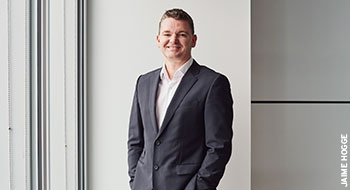

>> Why did you introduce reverse mentoring at Cisco, and how does it work?
Our culture has always been one of listening to all of our employees, whether you are a graduate on your first day or the senior vice-president of sales. Five years [ago], we set up a framework that enables all of our generation Y employees [and now, all employees] to form a relationship with an executive in our company.
[It’s] a bit like an online dating system: you can pick your executive, and they can pick their employee [executives can pick multiple mentors]. Then we give some guidelines on how to form a relationship and allow it to go in the direction it needs to.
Some of those relationships last about six to 12 months. Equally, we’ve got a lot of examples where those relationships have lasted multiple years. Even after the formal program concludes, those people will maintain that relationship on an informal basis.
We actively encourage our employees to be open. The executives want to understand what’s going on in the business. It [provides] the opportunity to give feedback in real time, and then you can [act on] that feedback. We ensure both parties understand that the nature of the relationship is to provide both positive and constructive feedback.
>> Describe your company’s flexible work arrangements.
All of our employees [can] work how, when and where they want. We train our managers to reward on outcomes, not on presenteeism. That enables us to recruit and retain the best talent. It enables our employees to take care of their day-to-day lives.
We use web-enabled conference technology. We can share videos; I can share my screen. Every employee in Cisco has an app on their smartphone that enables them to connect with any employee. They can instant message, text or set up a call.
Twenty-four percent of an average Cisco employee’s work is done from home. Forty-eight percent of our [work] time is often spent outside traditional working hours.
>> If you could mentor your 20-year-old self, what would you tell him?
Take a few more risks—informed risks. Make sure you’re knowledgeable in your area. That knowledge will breed confidence. If you’ve got confidence, that will enable you to take informed risks.
I had the knowledge; maybe I didn’t quite have the confidence. As a result, I didn’t take as many informed risks as I should have.
Yaldaz Sadakova is associate editor of Benefits Canada.
Get a PDF of this article.
